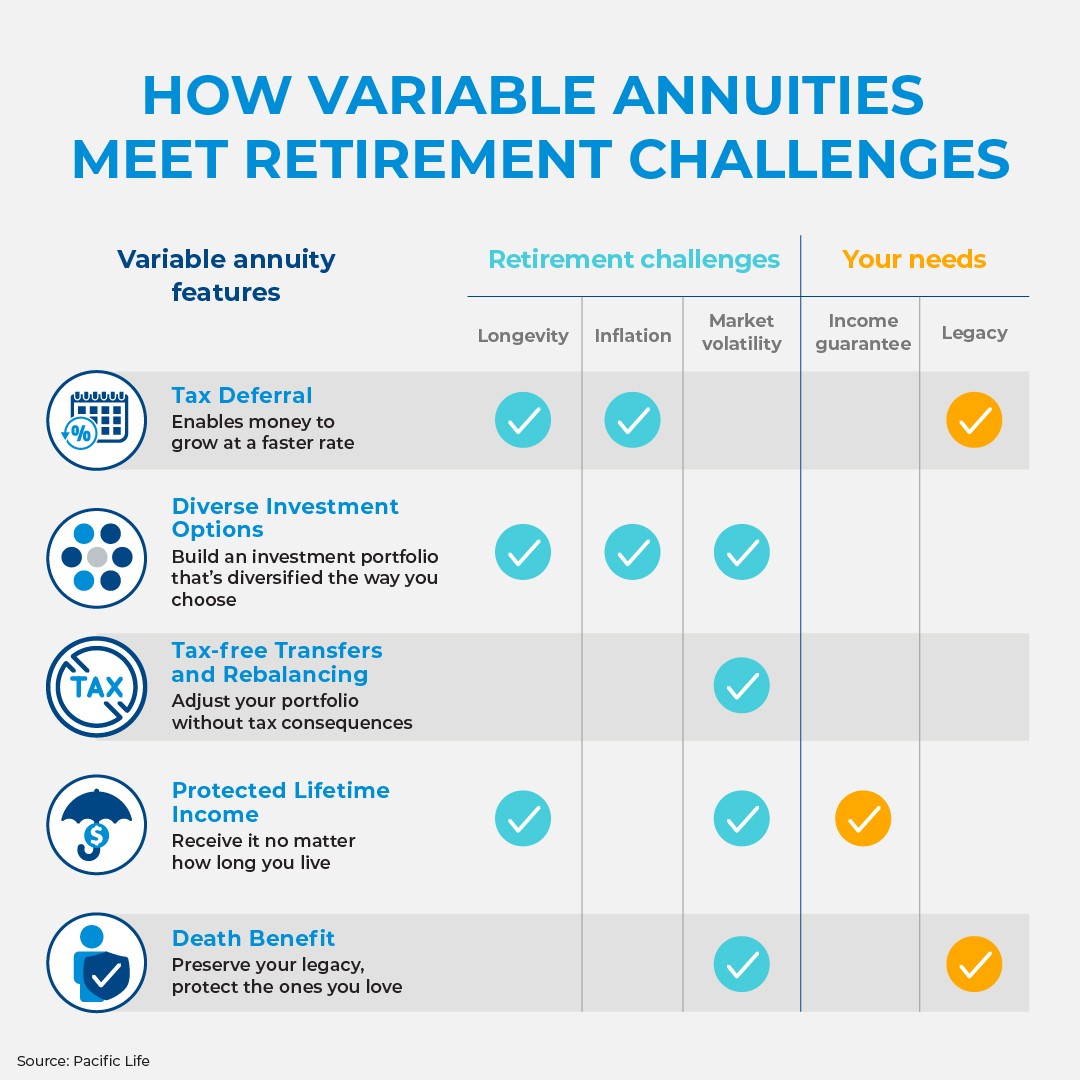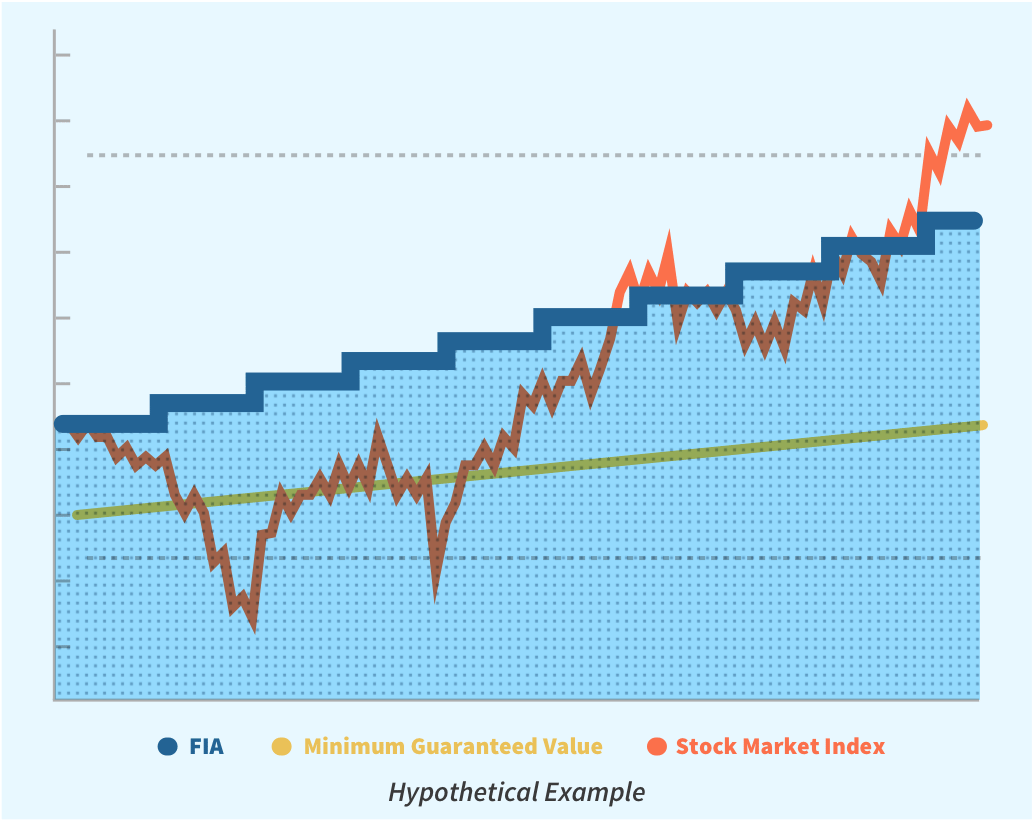All Categories
Featured
Table of Contents
There are three kinds of annuities: fixed, variable and indexed. With a taken care of annuity, the insurance policy business guarantees both the rate of return (the rate of interest rate) and the payout to the investor.
With a deferred fixed annuity, the insurance provider agrees to pay you no much less than a defined rate of rate of interest during the time that your account is growing. With a prompt fixed annuityor when you "annuitize" your deferred annuityyou get an established fixed amount of money, usually on a regular monthly basis (comparable to a pension plan).
While a variable annuity has the advantage of tax-deferred growth, its annual expenses are likely to be a lot higher than the costs of a normal common fund. And, unlike a repaired annuity, variable annuities don't give any kind of guarantee that you'll gain a return on your investment. Rather, there's a threat that you could in fact shed money.
Analyzing Strategic Retirement Planning A Closer Look at How Retirement Planning Works Defining the Right Financial Strategy Advantages and Disadvantages of Different Retirement Plans Why Choosing the Right Financial Strategy Is a Smart Choice How to Compare Different Investment Plans: How It Works Key Differences Between Different Financial Strategies Understanding the Key Features of Fixed Indexed Annuity Vs Market-variable Annuity Who Should Consider Strategic Financial Planning? Tips for Choosing Tax Benefits Of Fixed Vs Variable Annuities FAQs About Variable Vs Fixed Annuity Common Mistakes to Avoid When Planning Your Retirement Financial Planning Simplified: Understanding Your Options A Beginner’s Guide to Deferred Annuity Vs Variable Annuity A Closer Look at How to Build a Retirement Plan
Due to the intricacy of variable annuities, they're a leading source of financier complaints to FINRA. Prior to getting a variable annuity, meticulously checked out the annuity's prospectus, and ask the person offering the annuity to describe all of the product's attributes, cyclists, prices and limitations. Indexed annuities usually provide a minimum guaranteed passion price integrated with an interest rate connected to a market index.
Comprehending the attributes of an indexed annuity can be complicated. There are numerous indexing techniques firms utilize to calculate gains and, due to the fact that of the selection and complexity of the techniques used to credit report interest, it's tough to compare one indexed annuity to one more. Indexed annuities are usually classified as one of the adhering to two types: EIAs supply a guaranteed minimum rates of interest (normally at the very least 87.5 percent of the costs paid at 1 to 3 percent interest), as well as an added passion rate linked to the performance of one or more market index.

With variable annuities, you can spend in a range of safety and securities including stock and bond funds. Supply market performance determines the annuity's value and the return you will certainly obtain from the money you invest.
Comfy with variations in the securities market and want your financial investments to maintain pace with rising cost of living over a lengthy period of time. Youthful and wish to prepare economically for retired life by reaping the gains in the supply or bond market over the long-term.
As you're developing your retirement savings, there are many methods to stretch your money. can be particularly beneficial savings devices due to the fact that they assure a revenue amount for either a collection amount of time or for the remainder of your life. Repaired and variable annuities are 2 options that provide tax-deferred growth on your contributionsthough they do it in various methods.
Decoding Fixed Interest Annuity Vs Variable Investment Annuity A Comprehensive Guide to Investment Choices What Is the Best Retirement Option? Advantages and Disadvantages of Fixed Annuity Vs Variable Annuity Why Choosing the Right Financial Strategy Is a Smart Choice How to Compare Different Investment Plans: How It Works Key Differences Between Fixed Vs Variable Annuity Understanding the Risks of Long-Term Investments Who Should Consider Strategic Financial Planning? Tips for Choosing Fixed Vs Variable Annuity FAQs About Fixed Income Annuity Vs Variable Annuity Common Mistakes to Avoid When Planning Your Retirement Financial Planning Simplified: Understanding Your Options A Beginner’s Guide to Smart Investment Decisions A Closer Look at How to Build a Retirement Plan
An offers a guaranteed rate of interest price. Your contract value will raise due to the amassing of guaranteed interest profits, indicating it won't lose worth if the market experiences losses.
Your variable annuity's financial investment efficiency will influence the dimension of your nest egg. When you start taking annuity repayments, they will depend on the annuity value at that time.
Market losses likely will lead to smaller sized payouts. Any interest or various other gains in either kind of contract are protected from current-year taxes; your tax obligation will certainly come when withdrawals begin. Allow's take a look at the core features of these annuities so you can make a decision just how one or both might fit with your general retired life method.

A fixed annuity's worth will certainly not decline because of market lossesit's constant and secure. On the various other hand, variable annuity values will certainly change with the performance of the subaccounts you choose as the markets rise and fall. Revenues on your taken care of annuity will extremely depend upon its gotten rate when acquired.
Conversely, payout on a dealt with annuity bought when rates of interest are low are most likely to pay revenues at a reduced price. If the rates of interest is assured for the size of the contract, profits will certainly stay consistent no matter of the marketplaces or price task. A fixed price does not indicate that dealt with annuities are safe.
While you can't land on a set price with a variable annuity, you can choose to purchase conservative or aggressive funds tailored to your danger level. A lot more traditional investment choices, such as short-term bond funds, can help in reducing volatility in your account. Given that dealt with annuities use a set rate, reliant upon existing rates of interest, they do not use that exact same versatility.
Understanding Fixed Annuity Vs Equity-linked Variable Annuity A Comprehensive Guide to Investment Choices Breaking Down the Basics of Investment Plans Pros and Cons of Various Financial Options Why Choosing the Right Financial Strategy Matters for Retirement Planning Fixed Index Annuity Vs Variable Annuity: How It Works Key Differences Between Different Financial Strategies Understanding the Key Features of What Is A Variable Annuity Vs A Fixed Annuity Who Should Consider Strategic Financial Planning? Tips for Choosing the Best Investment Strategy FAQs About Fixed Vs Variable Annuities Common Mistakes to Avoid When Choosing Retirement Income Fixed Vs Variable Annuity Financial Planning Simplified: Understanding Your Options A Beginner’s Guide to Annuity Fixed Vs Variable A Closer Look at Variable Vs Fixed Annuities

Of the its assured development from accrued interest payments stands out. Dealt with rate of interest provide moderate development in exchange for their ensured profits. You potentially can gain much more long-term by taking extra danger with a variable annuity, however you could additionally lose cash. While taken care of annuity agreements avoid market threat, their trade-off is much less development potential.
Spending your variable annuity in equity funds will certainly provide even more possible for gains. The fees connected with variable annuities may be higher than for various other annuities.
The insurer might impose abandonment costs, and the IRS might levy a very early withdrawal tax fine. Give up charges are laid out in the agreement and can differ. They begin at a specific percent and after that decrease with time. The abandonment fine may be 10% in the first year yet 9% the next.
Annuity incomes are subject to a 10% early withdrawal tax charge if taken before you get to age 59 unless an exception uses. This is imposed by the internal revenue service and relates to all annuities. Both dealt with and variable annuities supply alternatives for annuitizing your equilibrium and turning it right into an ensured stream of lifetime earnings.
Analyzing Retirement Income Fixed Vs Variable Annuity A Closer Look at How Retirement Planning Works Defining Variable Annuity Vs Fixed Annuity Features of Smart Investment Choices Why Fixed Income Annuity Vs Variable Annuity Is Worth Considering How to Compare Different Investment Plans: A Complete Overview Key Differences Between Fixed Vs Variable Annuity Pros Cons Understanding the Key Features of Long-Term Investments Who Should Consider Strategic Financial Planning? Tips for Choosing Fixed Indexed Annuity Vs Market-variable Annuity FAQs About Planning Your Financial Future Common Mistakes to Avoid When Planning Your Retirement Financial Planning Simplified: Understanding Fixed Index Annuity Vs Variable Annuity A Beginner’s Guide to Variable Annuity Vs Fixed Indexed Annuity A Closer Look at How to Build a Retirement Plan
You may decide to make use of both taken care of and variable annuities. Yet if you're choosing one over the various other, the distinctions matter: A might be a better choice than a variable annuity if you have an extra conservative danger tolerance and you look for foreseeable interest and major protection. A may be a better alternative if you have a higher threat tolerance and want the potential for long-lasting market-based development.
There are different kinds of annuities that are developed to offer various objectives. A set annuity guarantees payment of a set amount for the term of the arrangement.
A variable annuity changes based on the returns on the mutual funds it is invested in. Its value can increase or down. An instant annuity starts paying out as soon as the customer makes a lump-sum payment to the insurance provider. A deferred annuity starts settlements on a future day established by the purchaser.
An annuity that offers guaranteed income permanently (or beyond, for your beneficiary) Ensures you that even if you deplete their other possessions, you will still have some income coming in. Annuities' returns can be either repaired or variable. Each kind has its advantages and disadvantages. With a fixed annuity, the insurance provider guarantees the customer a particular settlement at some future day.
Table of Contents
Latest Posts
Analyzing Variable Annuity Vs Fixed Indexed Annuity A Comprehensive Guide to Investment Choices What Is Fixed Vs Variable Annuity? Benefits of Choosing the Right Financial Plan Why Fixed Index Annuity
Decoding Variable Vs Fixed Annuity A Closer Look at How Retirement Planning Works Defining the Right Financial Strategy Pros and Cons of Various Financial Options Why Choosing the Right Financial Stra
Analyzing Fixed Index Annuity Vs Variable Annuities Key Insights on Fixed Income Annuity Vs Variable Growth Annuity What Is the Best Retirement Option? Pros and Cons of Various Financial Options Why C
More
Latest Posts